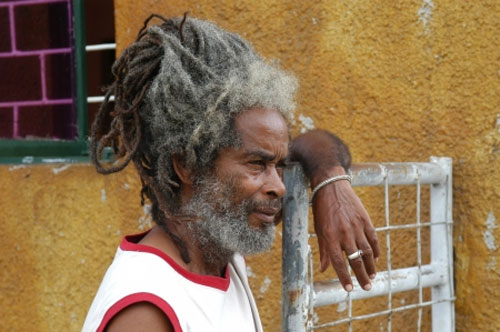Mr Big trembling in his shoes saying he’s got a lot to lose,
Don’t want to hear about suffering at all
(Joshua said)
One man have too many, while too many have too little,
Socialism don’t stand for that, don’t stand for that at all
The stanza above belongs to the song “Socialism is Love” by Max Romeo. It was a single composed to galvanize Jamaica into adhering to Micheal Manley’s politics. It is one of many great songs that span the relationship between a two-time Jamaican president and a legendary Jamaican musician.
“Socialism Is Love” was released in 1974. It is a very clear song and its lyrics are straight to the point. It is as political as a song can get and feels like it is pushing an ideology more so than offering melody, harmony or rhythm to a listener. It sounds like populist politicking.
Jamaica in the 1970’s had bred strong political opinions that stemmed from plantation society reinforced by an adherence to the political ideologies that were in vogue, whether it was the traditional right wing or communism or socialism. Members of its society were born into a conflict that had begun way before their birth and that continue on to this day – how to administrate the island and how its riches should be separated. It was a time of strong opinions and as such a very dangerous time. One was either on the socialist side, the PNP, or the liberal side, the JLP.
Jamaica in the 1970’s was, as a society that had bred strong political opinions, one of strong political alliances. Max Romeo and Micheal Manley’s friendship was such an alliance: a vow to change a nation marketed as beach and Sun but full of oppression through the potent combination of music and politics. Each would gain something from the other. One would win office, the other cultural grandeur. How could they have met? It is not specified.
Maxwell Livingston Smith, Max Romeo, was not born into Jamaica’s landed class whereas Micheal Manley was. Manley’s father Norman Manley became the president of Jamaica whereas Max Romeo worked on a sugar plantation when he was young.
Max Romeo came to record a song “Let The Power Fall on I” for Micheal Manley’s victorious 1972 presidential campaign. Manley used a whole host of Rastafari cultural signs to persuade the demos and Romeo’s song belonged to his campaign’s communication scheme.
Oh let the power fall on I, Far I
Let the power fall on I
Oh let the power, from Zion, fall on I
Let the power fall on I
Oh let the wicked burn in flames, Far I
Let the wicked burn in flames
“Joshua Row The Boat Ashore,” “No Joshua No, ”and “Joshua Gwan” were further recorded by Max Romeo to plead Manley’s cause. Manley was known as “Joshua” by Jamaica’s populace.
Max Romeo’s political music went beyond supporting Manley. His other great songs seem to be all better than the ones he made for Manley, but it is undeniable that the ones he produced for Manley are superb. Propaganda? The relationship between music and politics goes a long way back and Jamaican politics is no exception to the rule. They sound like propaganda and the lyrics seem flat because they are. However, it is obvious that they worked given that Manley won the 1972 Jamaican presidential race.
The songs that stemmed from Manley and Romeo’s political alliance, one becomes President and the other bard of the socialist revolution, are testaments of a time past and are all engaging. The collection of them merits a serious listen.


